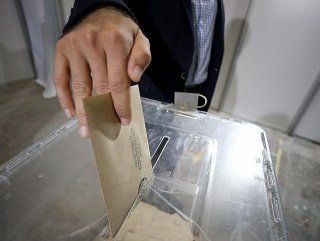According to a renowned Greek conflict resolution expert, the leaders of Türkiye and Greece possess both sincerity and the necessary capabilities to effectively address long-standing tensions between their nations, particularly in light of the recent decrease in tensions.
Alexis Heraclides, speaking to Anadolu, highlighted that the appointment of George Gerapetritis, known for his pro-solution and liberal stance, as foreign minister on the Greek side in place of the hawkish Nikos Dendias, reflects Prime Minister Kyriakos Mitsotakis’ readiness for resolution.
“The strong mandate he got in the June 25 elections and his profile as a defender of Greek interests also give Mitsotakis confidence and authority to elevate the current positive climate with Türkiye and finally resolve the long-standing dispute between the two countries,” said Heraclides, a senior expert on Turkish-Greek relations at Athens’ Panteion University.
He stressed, however, that nationalism and even anti-Turkish feelings are strong in Greek society and politics, and this has been a major obstacle to a resolution between the two NATO allies.
Criticism of Mitsotakis from opposition parties, including the leftist SYRIZA, PASOK, and Greek Communist Party, proves how widespread Greek nationalism is even in left-wing politics, which many times in the past undermined efforts to improve relations with Türkiye, said Heraclides.
According to Heraclides, in Türkiye, on the other hand, the state of affairs is quite different.
“First and foremost, (Turkish President Recep Tayyip) Erdoğan can convince his voters, which constitute over half of the population. And secondly, there are no inherent anti-Greek feelings among voters of other parties in Türkiye. Overall, Türkiye was always more ready and eager to engage in dialogue, which can lead to a permanent resolution,” he underlined.
For example, Erdoğan took serious and sincere initiatives more than once to resolve both problems with Greece and the Cyprus dispute but it was always the Greek side or Greek Cypriots who spoiled the efforts, Heraclides argued.

External factors behind push for resolution
Since the latest major escalation between Türkiye and Greece, things have changed drastically in the Eastern Mediterranean and in the world in general, Heraclides said, adding that Washington wants a stronger and more unified NATO in the light of the ongoing Ukraine war.
“Having understood that Erdoğan is here at least for another five years as a result of the Turkish election in May and that tension between Ankara and Athens weakens the southeastern flank of NATO, the US pushed Greece to improve relations with Türkiye,” he noted.
Heraclides said that major regional actors such as Israel and Egypt are now normalizing relations with Türkiye while the United Arab Emirates and Saudi Arabia are even seeking to elevate relations to a strategic level.
“Against this backdrop, Greece came to the conclusion that the time has arrived for a new reset in relations,” he said, adding that improving ties would contribute to stability and prosperity in the region.
Heraclides also stressed that better relations with Türkiye would benefit the Greek economy.
“I’m not only talking about cooperation in the fields of tourism, logistics, or boosting the bilateral trade volume. Greece has things to learn from Türkiye, for example, in providing a quality, efficient public health system,” he added.
“By and large, I reiterate that Mitsotakis, like Erdoğan, is sincere, and hope that he wouldn’t allow anti-Türkiye forces in the country to lead us to miss this great change too,” Heraclides said.
By Breaking News Turkey with AA













